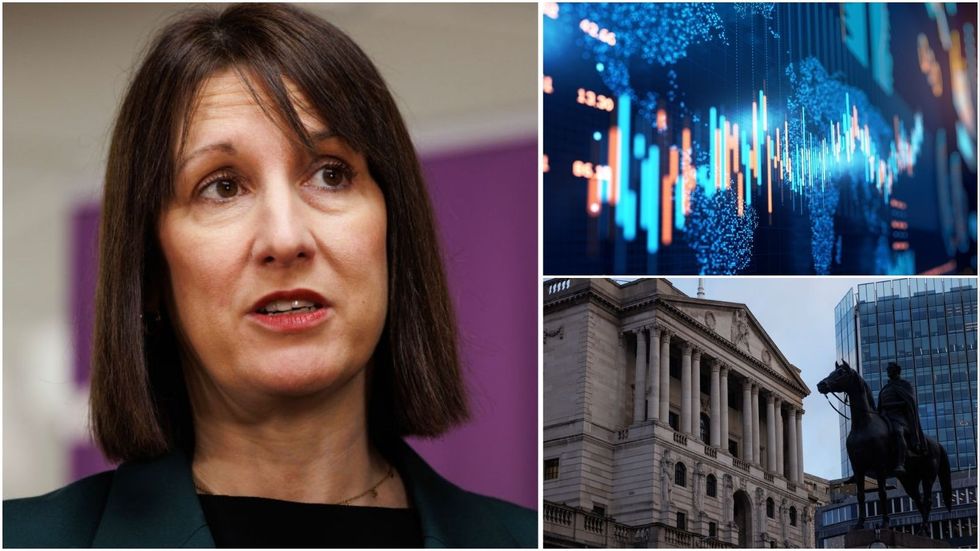UK borrowing costs rose unexpectedly to £17.8billion in December, but Chancellor Rachel Reeves remains confident in the country’s financial health following the October budget.
This figure was around 25 per cent higher than what economists had predicted and was £10.1billion more than the same time last year, making it the highest borrowing in December for four years.
The unexpected rise puts pressure on Reeves to make tough decisions on budget cuts before the upcoming spending review in the summer.
The UK’s budget deficit was larger than expected in December, largely due to high debt interest costs and a one-off military housing purchase, according to new data released on Wednesday.
Public sector net borrowing reached £17.8billion ($21.93billion) in December, the Office for National Statistics (ONS) reported. Economists had predicted borrowing would be around £14.1billion.

The UK’s budget deficit was larger than expected in December
GETTY
The ONS said that a significant part of the borrowing came from an £8.3billion debt interest bill, which was the third-highest December total ever. Additionally, a £1.7billion payment for repurchasing military homes added to the overall borrowing.
Even with the higher figures, Reeves remains confident in the UK economy.
During her trip to Davos, Switzerland for the annual World Economic Forum, the Chancellor insisted the country’s finances “were now in order” following her October budget.
She said: “Now we have wiped the slate clean, my instinct is to have lower taxes, less regulation, make it easier for businesses to do business.”
LATEST DEVELOPMENTS:
The Government borrowing data was released before the recent turmoil in global bond markets, which caused the yield (interest rate) on UK Government debt to spike.
The yield on UK 30-year bonds reached its highest level since 1998 before dropping back down when inflation data showed it had fallen to 2.5 per cent in December.
The pound also dropped to a 14-month low of $1.22 in early January but has since risen slightly. This drop marked a sharp fall from the $1.34 level in September.
In response to the borrowing rise, Darren Jones, the Chief Secretary to the Treasury, said: “Economic stability is vital for our number one mission of delivering growth.
“That’s why our fiscal rules are non-negotiable and why we will have an iron grip on public finances.
“Through our Spending Review, we will examine every line of government spending for the first time in 17 years, rooting out waste to ensure taxpayers’ money is spent wisely.”
The next financial statement will be on March 26 and a budget in the autumn.

The next financial statement will be on March 26 and a budget in the autumn.
Getty
The official independent economic forecaster, the Office for Budget Responsibility, will give a health check on the Government’s budget targets at both events.
Jones said the Government will “interrogate every line of government spending for the first time in 17 years” to “root out waste to ensure every penny of taxpayers’ money is spent productively and helps deliver our plan for change”.